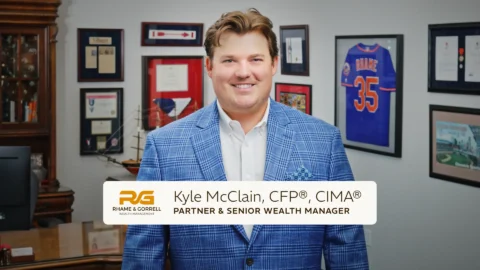9 Questions to Ask Yourself During the Estate Planning Process
Make Sure To Check All of The Boxes For Estate Planning
The estate planning process can feel overwhelming and forever ongoing – especially if you’re taking it on alone. As you try to address every possible question or pain point your heirs may encounter, here are a few questions of your own to consider.
Question #1: Do I Have a Will?
A last will & testament enables you to specify who you want to inherit your property and other assets. A will also enables you to name a guardian for dependents, such as children under 18 or loved ones with special needs.
Question #2: Do I Have Healthcare Documents in Place?
Healthcare documents spell out your wishes for health care if you become unable to make medical decisions for yourself. They also authorize a person to make decisions on your behalf if that should prove necessary.
These documents may include:
- Living will (indicates your wished in the event of incapacity, vegetative state, etc.)
- Durable power of attorney agreement for healthcare (Allows a trusted individual to make medical decisions even if you are incapacitated)
- HIPAA Release
Question #3: Do I Have Financial Documents in Place?
Certain financial documents can outline your financial wishes. If you become unable to make decisions for yourself, these financial documents can be structured to empower a person to make decisions on your behalf.
These documents may include:
- Certain joint ownership structures
- Durable power of attorney for finances
- Living trusts or family trusts
Question #4: Have I Filed Beneficiary Forms?
In some cases, naming a beneficiary for bank accounts and retirement plans makes these accounts “payable on death” to your beneficiaries. In other cases, you will need to fill out a “Payable on Death” form.
One item of note – a beneficiary designation supersedes a will! That means the beneficiary designation or POD will overrule what is in the last will and testament. Keeping designations current is a must!
Question #5: Do I Have the Right Amount and Type of Life Insurance?
When was the last time you assessed your life insurance coverage? Have you compared the life insurance benefit with your financial obligations?
Keep in mind that several factors will affect the cost and availability of life insurance, including age, health and the type and amount of insurance purchased. Term insurance is generally the best and cheapest way to insure yourself. Permanent life insurance policies have expenses, including mortality and other charges. If a permanent policy is surrendered prematurely, the policyholder also may pay surrender charges and have income tax implications.
Consider determining whether you are insurable before implementing a strategy involving life insurance. Additionally, consider the creditworthiness of the issuing company – any guarantees associated with a policy are dependent on the ability of the issuing insurance company to continue making claim payments. In this article, tax specialist Clay Hostetter, CPA/PFS, CFP®, CIMA® delves into some considerations when selecting life insurance.
Question #6: Have I Taken Steps to Manage My Federal Estate Tax?
If you and your spouse have more than $23.4 million in assets (for 2021), you may want to consider taking steps to manage federal estate taxes, which will be due at the second spouse’s death.1 This exemption is likely to be reduced dramatically based upon proposed legislation, so ask your financial professional about estate minimization and gifting strategies if appropriate.
Question #7: Have I Taken Steps to Protect My Business?
If you’d like your family to continue running the business, do you have a family succession plan in place? If you own a business with others, you may also want to consider a buyout agreement or other business management strategies in the event of a founder’s passing.
Question #8: Have I Created a Letter of Instruction or Intent?
A letter of instruction is a non-legal document that outlines your wishes. A strong, well-written letter may save your heirs time, effort and expense as they administer your estate.
Question #9: Will My Heirs Be Able to Locate My Critical Documents?
After your passing, your heirs will need access to the specific documents you have created to manage your estate.
These documents may include:
- Your will
- Trust documents
- Life insurance policies
- Deeds to any real estate, and certificates for stocks, bonds, annuities
- Information on your financial accounts and safe deposit boxes
- Information on your retirement plans
- Information on any debts you have: credit cards, mortgages and loans.
Depending on the size and complexity of your estate, preparing for your passing can be a complicated process. Consider working with a knowledgeable estate management professional who can help address potential tax obligations, division of property, insurance options and more.
Need Some Help?
If you’d like some help from one of our CPAs or CERTIFIED FINANCIAL PLANNER (CFP®) advisors regarding this strategy and how it applies to you, the Rhame & Gorrell Wealth Management team is here to help.
Our experienced Wealth Managers facilitate our entire suite of services including financial planning, investment management, tax optimization, estate planning, and more to our valued clients.
Feel free to contact us at (832) 789-1100, [email protected], or click the button below to schedule your complimentary consultation today.
IMPORTANT DISCLOSURES:
Corporate benefits may change at any point in time. Be sure to consult with human resources and review Summary Plan Description(s) before implementing any strategy discussed herein.Rhame & Gorrell Wealth Management, LLC (“RGWM”) is an SEC registered investment adviser with its principal place of business in the State of Texas. Registration as an investment adviser is not an endorsement by securities regulators and does not imply that RGWM has attained a certain level of skill, training, or ability. This material has been prepared for informational purposes only, and is not intended to provide, and should not be relied on for, tax, legal or accounting advice. You should consult your own CPA or tax professional before engaging in any transaction. The effectiveness of any of the strategies described will depend on your individual situation and should not be construed as personalized investment advice. Past performance may not be indicative of future results and does not guarantee future positive returns.
For additional information about RGWM, including fees and services, send for our Firm Disclosure Brochures as set forth on Form ADV Part 2A and Part 3 by contacting the Firm directly. You can also access our Firm Brochures at www.adviserinfo.sec.gov. Please read the disclosure brochures carefully before you invest or send money.











